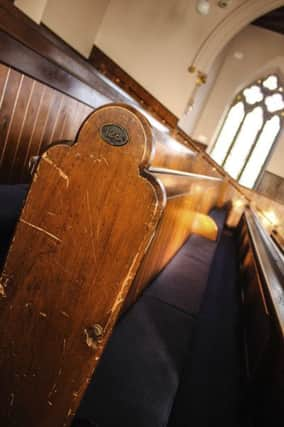Ian Montagu: Is Scotland losing its faith?


Is Scotland losing its faith?
Scotland has long been regarded as marked out by intense religious differences. Now, however, it is a country in which most people do not identify with a religion at all. In 1999 ScotCen found that 40 per cent of Scots had no religious affiliation, a figure that has risen to 52 per cent today.
This year’s SSA data also suggests that those with some kind of connection with a religion – those either saying they belong to a religion themselves or were brought up in one – are less likely to attend religious services than in the past. Two-thirds of this group now say they “never or practically never” attend services connected with their religion, with only 14 per cent of religious Scots attending a religious service at least once a week.
Advertisement
Hide AdAdvertisement
Hide AdTaken together, these findings show that commitment to religion in Scotland, both in terms of religious identity and attendance at religious services, is in decline. Interestingly, however, this trend is not affecting all religions equally. While levels of identification with other religions remain relatively unchanged, the proportion saying that they belong to the Church of Scotland has fallen sharply from more than one third in 1999 to 20 per cent today.
It appears that as fewer Scots are willing to acknowledge a religious identity, it is affiliation with the national church that is the hardest-hit. Identification with the Kirk used to be the default response for many – it was at least where they marked birth, marriage and death. But in a less religious age, even that is no longer the case. A similar effect has been seen south of the Border, where figures from the latest British Social Attitudes survey show a continued drop in affiliation with the Church of England.
But when it comes to turning up to a service, other religions also show signs of decline. In 1999 for example, nearly half (46 per cent) of Catholics said that they attended mass once a week. Now not much more than a quarter (29 per cent) do so.
So what is behind this apparent fall in religious identity? We know from previous analysis of religious attitudes that part of the answer, at least, is something referred to as “generational displacement”. Each generation of Scots has been less likely to identify with a religion or to attend service than has its predecessor; even if their parents attended church, younger people, influenced by the wider trend towards a more secular society, have not necessarily picked up the habit.
But is further decline in religion inevitable in Scotland? Perhaps not. Much of the recent decline in religious affiliation and attendance occurred in the first decade of this century. The proportion who say they do not belong to any religion is little different now from what it was in 2009, and among the remainder the proportion who regularly attend a religious service has not changed much since then either.
Only a minority of Scots may uphold a faith these days, but that that does not necessarily mean that Scotland’s religious landscape is set to disappear.
Ian Montagu is a researcher with ScotCen Social Research.
